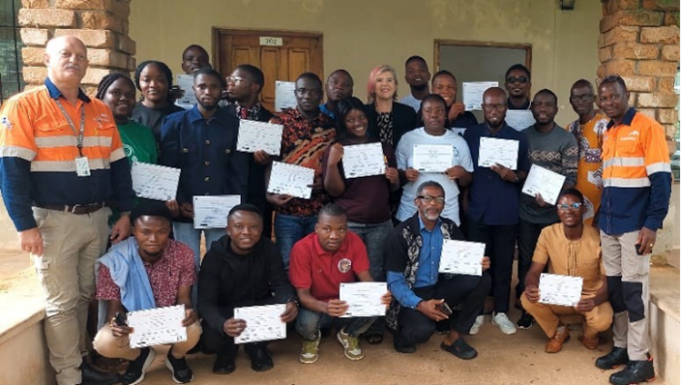ArcelorMittal Liberia (AML), a prominent player in Liberia’s iron ore industry, has demonstrated a commitment to empowering local communities residing near its operational areas, often referred to as “fence-line communities.” Recognizing the need to bridge the skills gap that often hinders these communities from accessing employment and training opportunities, AML, through its training academy (AMLTA), has undertaken a proactive initiative to enhance the academic preparedness of local residents. This initiative addresses a critical challenge identified in previous recruitment drives where many applicants from these communities struggled to meet the required standards in English and Mathematics, key subjects assessed during the application process.
In a strategic partnership with the African Bible College University (ABCU), AMLTA recently concluded a comprehensive three-week teacher training program. Twenty teachers, selected from various educational institutions, participated in this intensive training, equipping them with enhanced pedagogical skills to effectively instruct aspiring job seekers and vocational trainees from the targeted communities. The program focused specifically on bolstering the teachers’ ability to deliver effective instruction in English and Mathematics, the two subjects identified as presenting the most significant hurdle for local applicants.
This collaborative endeavor between AMLTA and ABCU is a direct response to concerns raised regarding the representation of fence-line communities in AML’s workforce and training programs. Historically, there have been perceptions that individuals from these communities were being overlooked in favor of applicants from other regions. However, AML’s proactive approach in identifying and addressing the root cause of this disparity—the lack of foundational skills in English and Mathematics—demonstrates a genuine commitment to inclusivity and local empowerment.
To gain a clearer understanding of the academic standing of potential candidates within the fence-line communities, AMLTA conducted its aptitude test exclusively within these areas in the previous year. This targeted assessment allowed AMLTA to categorize applicants into three proficiency levels: P1, P2, and P3. P3 signifies the highest achievement level, granting direct admission into the training center. P2 represents a strong pass, while P1 indicates a pass at a lower proficiency level. The results of this targeted assessment further underscored the need for focused training in English and Mathematics.
During the certification ceremony held at ABCU, Dawie Loots, Manager of AMLTA, emphasized the strategic importance of this training program. He highlighted the aim of building a cadre of qualified and competent teachers who can effectively mentor and prepare job and training applicants from the fence-line communities for the opportunities that lie ahead. Mr. Loots reiterated the company’s commitment to ensuring local participation in its workforce and training programs, stressing the importance of adequate preparation in English and Mathematics as a gateway to these opportunities. He commended the participating teachers for their dedication and encouraged them to utilize their newly acquired skills to empower individuals from the fence-line communities.
Neah G. Malue, Acting Vice Chancellor of ABCU, lauded the partnership with AMLTA and urged the newly trained teachers to exemplify the program’s objectives through their teaching. Furthermore, Mr. Malue clarified the financial arrangements of the training, emphasizing that ABCU was responsible for all monetary matters related to the program, not AML. This clarification was intended to preempt any potential misunderstandings or misdirected grievances towards AML regarding financial issues. Sharon Blignaut, the facilitator of the training, also expressed her appreciation to AMLTA for the opportunity to contribute to this important initiative. She praised the participants’ engagement and interest throughout the training period. This comprehensive training program signifies a significant step towards fostering inclusive development and empowering local communities to actively participate in the economic opportunities generated by AML’s operations in Liberia.


